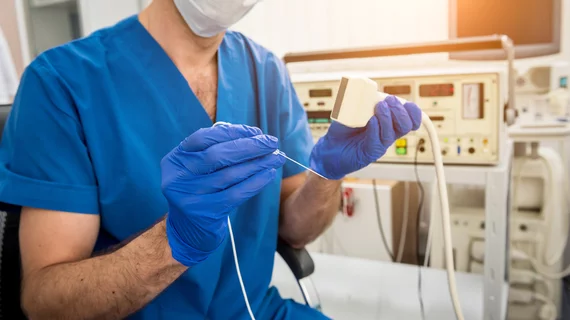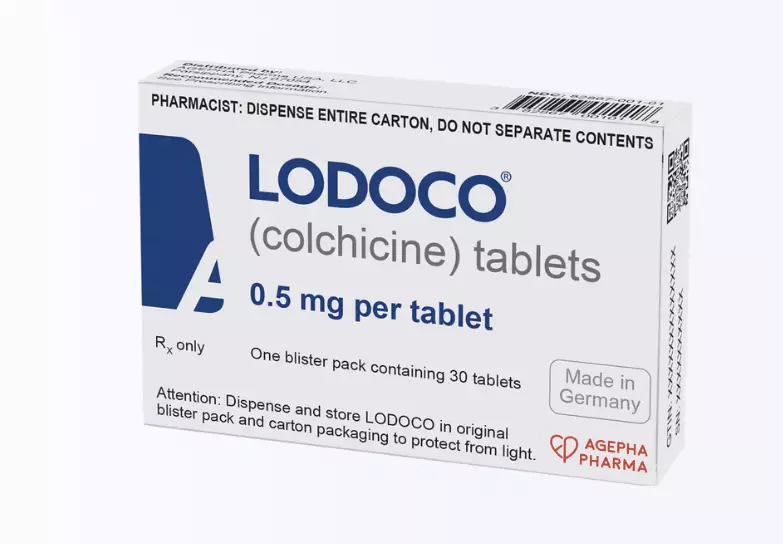Colchicine after AFib ablation fails to reduce risk of arrhythmia recurrence
Treating patients with 10 days of colchicine therapy after they undergo catheter ablation for atrial fibrillation (AFib) does not lower their risk of arrhythmia recurrence, according to new research published in Circulation: Arrhythmia and Electrophysiology.[1]
Colchicine is sold and marketed by Agepha Pharma USA under the brand name Lodoco. Back in June 2023, it became the first anti-inflammatory drug approved by the U.S. Food and Drug Administration to treat cardiovascular disease. Cardiologists cheered the news, and one researcher even described the approval as the beginning of “a new era of patient care.”
There is an established connection between elevated biomarkers of inflammation after ablation and arrhythmia recurrence. The study’s authors aimed to learn if treatment with a common anti-inflammatory agent could help keep those biomarkers low and reduce the overall risk of recurrence.
“Reducing post-ablation inflammation may result in less early atrial arrhythmia recurrence and improve clinical outcomes following catheter ablation,” wrote first author Alexander P. Benz, MD, MSc, a researcher with McMaster University in Canada, and colleagues.
Benz et al. conducted a double-blind, placebo-controlled study, focusing on 199 patients who underwent a successful catheter ablation procedure from January 2020 to September 2021. Patients had a median age of 61 years old, and 78% were men. While 79% of patients underwent radiofrequency ablation, the other 21% underwent cryoballoon ablation. The median follow-up time after ablation was 1.3 years.
Overall, 31% of patients from the colchicine group and 32% of patients from the placebo group experienced atrial arrhythmia recurrence in the first two weeks following ablation. Rates were similarly close as more time passed following the procedure.
The research team did pick up on some key differences between the two groups. Colchicine was linked to a significant decrease in post-ablation chest pain consistent with pericarditis, for example, but a significant increase in diarrhea.
“Although our definition of pericarditis different from more stringent definitions, the observed beneficial effect of colchicine on post-ablation chest pain in this placebo-controlled, double-blind trial was clinically meaningful,” the authors wrote. “Subgroup analyses suggested a greater treatment effect in patients receiving radiofrequency ablation compared with patients undergoing cryoballoon ablation.”
The increase in post-treatment diarrhea, on the other hand, was “much higher than in previous trials.” The authors cited interactions between colchicine and concomitant medications as a likely explanation.
Moving on to six months after catheter ablation for AFib, there was not a significant difference in the composite outcome of emergency department visits, cardiovascular hospitalizations, cardioversion or repeat ablation procedures between patients treated with colchicine and those given a placebo.
The authors did note that this analysis was not “sufficiently powered to definitively exclude a clinically significant benefit with colchicine.” Larger studies will be necessary before such a determination can be made.
Click here to read the full study.


